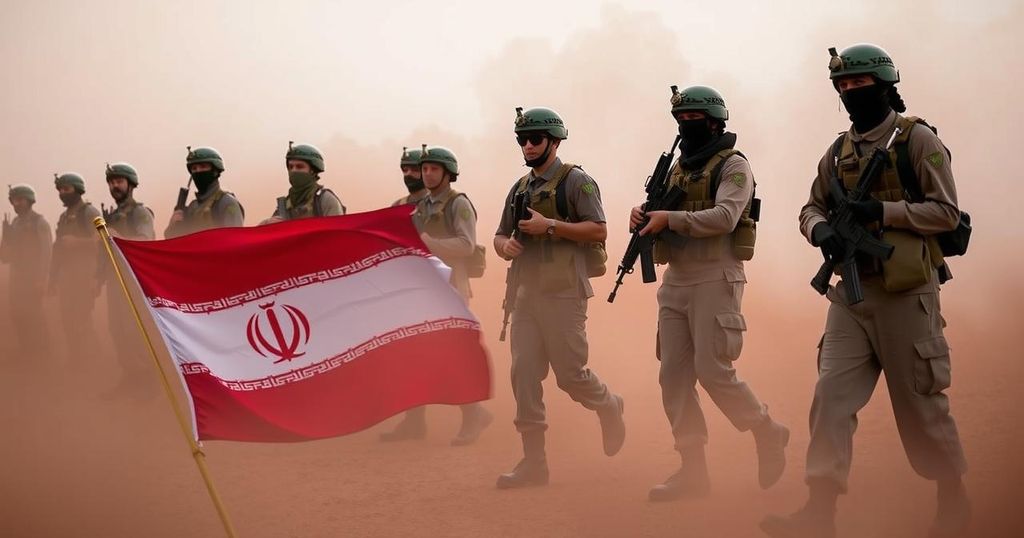Global news
’ S POPULAR MOBILIZATION UNITS, ” FAYYAD, ASIA, BADR ORGANIZATION, CONFLICT, FALEH AL - FAYYAD, HAMID AL - SHATRI, HASHD AL - SHAABI, HEZBOLLAH, IRAN, ISLAMIC REPUBLIC OF, KATAIB HEZBOLLAH, KURDISTAN AUTONOMOUS REGION, MIDDLE EAST, MILITARY OPERATIONS, MOBILIZATION, QASSEM SOLEIMANI, SOLEIMANI, SYRIA, TERRORISM
Jamal Walker
0 Comments
Iraqi Militias Reaffirm Allegiance to Iran Amid Shifting Regional Dynamics
The Iraqi Popular Mobilization Units continue to express allegiance to Iran as PMU leader Faleh Al-Fayyad commemorates victory over ISIS. Amidst reduced hostilities towards Israel, Iraqi militias shift focus towards developments in Syria under new leadership, with implications for Iraqi Sunni leaders and the Kurdistan region.
Recent reports reveal that the Iraqi Popular Mobilization Units (PMU), also known as Hashd al-Shaabi, have reaffirmed their allegiance to Iran amid shifting regional dynamics. Faleh Al-Fayyad, the head of the PMU, emphasized this commitment during a meeting in Diyala province, marking the anniversary of their victory over ISIS in December 2014. Al-Fayyad’s remarks particularly highlighted loyalty to Iranian Lieutenant General Qassem Soleimani, whose strategic influence against ISIS was acknowledged prior to his assassination by a US drone strike in January 2020.
This pledge of loyalty occurs in the backdrop of Iraqi militias seeking to recalibrate their focus away from Israel, redirecting their priorities towards the recent developments in Syria. Following a meeting between the new Syrian leader Ahmed al-Sharaa and a delegation from Iraq led by Hamid al-Shatri, there is growing speculation regarding how these changes may affect Iraq. Hadi al-Amiri, leader of the Badr Organization within the PMU, expressed confidence in facing the new Syrian government while acknowledging potential concerns regarding influences on Iraq.
In addition to the PMU’s stance, Sunni leaders in Iraq perceive the evolving political landscape in Syria as a potentially advantageous scenario for Sunnis within Iraq. The autonomous Kurdistan region is also attentively observing these changes, hoping for a unifying political effort in eastern Syria that may involve other Kurdish factions. All these elements underscore a complex interplay of loyalty, regional politics, and anticipated power shifts in the Middle East.
The Popular Mobilization Units (PMU) emerged during the fight against ISIS in Iraq, consisting primarily of Shiite militias often backed by Iran. Their foundational goal was to combat the surge of ISIS, which occupied large portions of Iraq beginning in 2014. With the recent decline of ISIS’s territorial control and the political landscape shifting notably in Syria, reactions from Iraqi factions reflect broader strategic concerns, particularly with the resurgence of Iranian influence in the region.
The assertions made by PMU leaders affirm continuing Iranian loyalty while reflecting broader concerns over regional stability, particularly with the shifts in Syria. These dynamics signify a pivotal moment for Iraqi militias as they navigate their role amidst evolving power relations and potential conflicts involving both Iranian interests and the Syrian government’s influence on Iraq.
Original Source: www.jpost.com




Post Comment